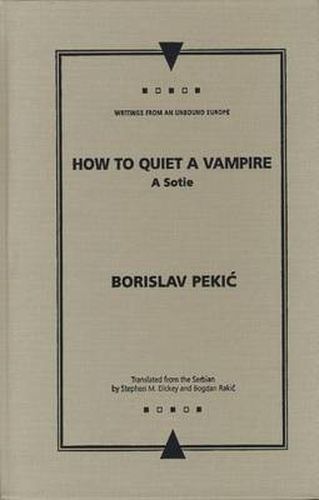Readings Newsletter
Become a Readings Member to make your shopping experience even easier.
Sign in or sign up for free!
You’re not far away from qualifying for FREE standard shipping within Australia
You’ve qualified for FREE standard shipping within Australia
The cart is loading…






Published to acclaim in 1977, this controversial novel of ideas follows Konrad Rutkowski - professor of medieval history and former Gestapo officer - as he returns to the scene of his war crimes determined to renounce, or perhaps justify, his Nazi past. In a series of letters to a brother-in-law, Rutkowski lays out his ambivalent reactions to war and unthinkable violence, connecting his own swirling ideas to those of some of the major figures of European thought: Plato, St. Augustine, Descartes, Nietzsche, Freud, and others. But the novel is more than an intellectual meditation. Pekic was himself a frequent political agitator and occasional prisoner, and he drew on his first hand knowledge of police methods and life under totalitarianism to paint a chilling portrait of an intellectual acting as a tool of repression. At the same time he questions whether Rutkowski’s ideology puts him outside the philosophical tradition he so admires - or if the line separating it from totalitarianism is not as clear as we like to think.
$9.00 standard shipping within Australia
FREE standard shipping within Australia for orders over $100.00
Express & International shipping calculated at checkout
Published to acclaim in 1977, this controversial novel of ideas follows Konrad Rutkowski - professor of medieval history and former Gestapo officer - as he returns to the scene of his war crimes determined to renounce, or perhaps justify, his Nazi past. In a series of letters to a brother-in-law, Rutkowski lays out his ambivalent reactions to war and unthinkable violence, connecting his own swirling ideas to those of some of the major figures of European thought: Plato, St. Augustine, Descartes, Nietzsche, Freud, and others. But the novel is more than an intellectual meditation. Pekic was himself a frequent political agitator and occasional prisoner, and he drew on his first hand knowledge of police methods and life under totalitarianism to paint a chilling portrait of an intellectual acting as a tool of repression. At the same time he questions whether Rutkowski’s ideology puts him outside the philosophical tradition he so admires - or if the line separating it from totalitarianism is not as clear as we like to think.